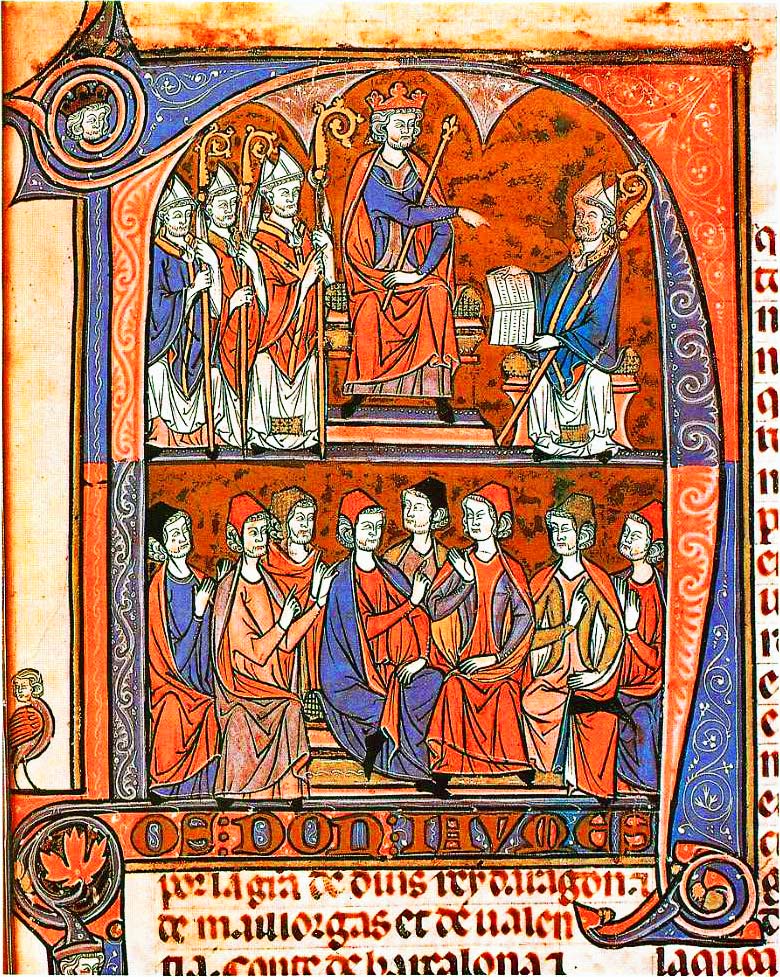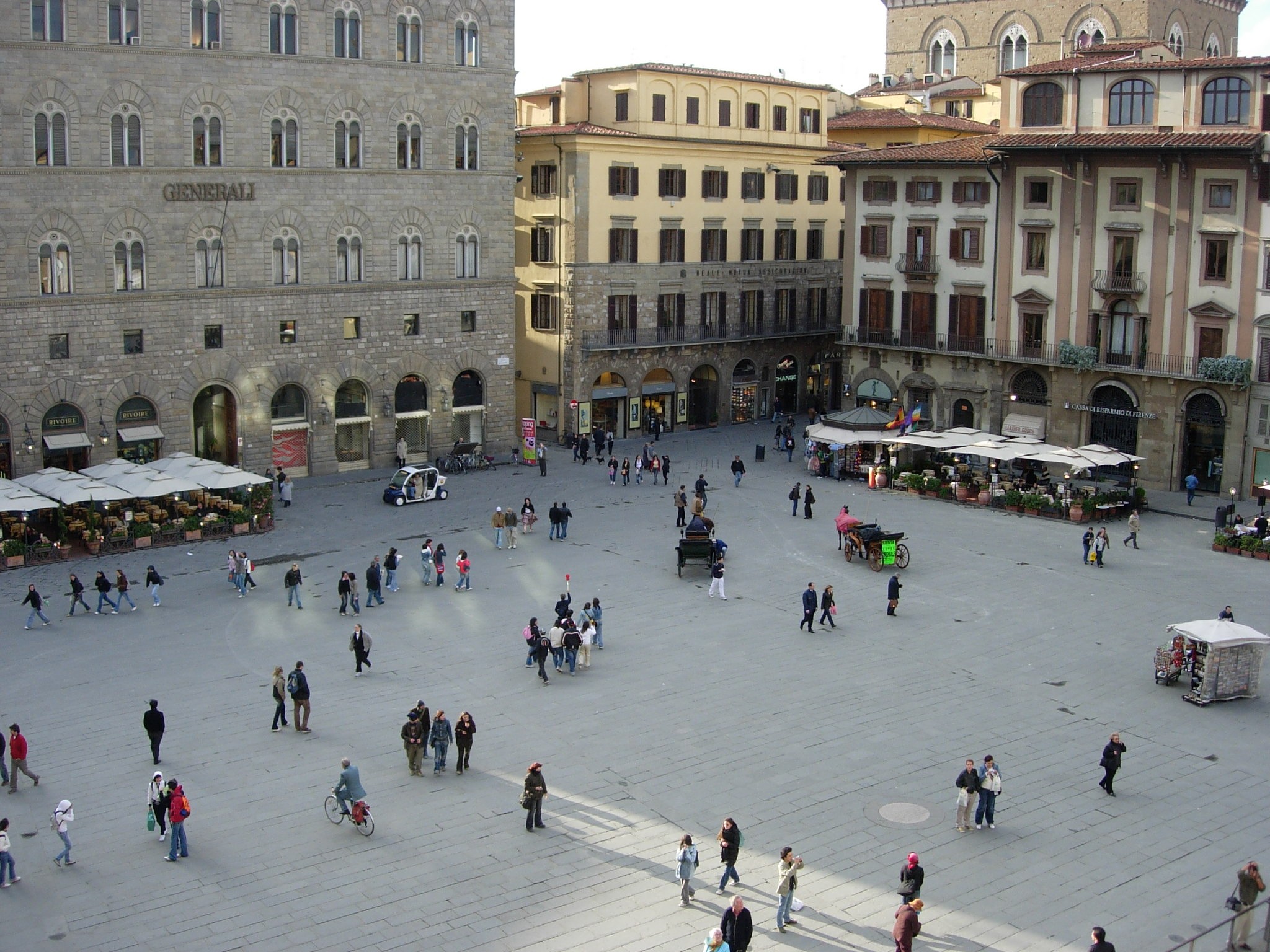|
Fossar De Les Moreres
The Fossar de les Moreres (, literally "Grave of the Mulberries") is a memorial square in Barcelona (Catalonia, Spain), adjacent to the basilica of Santa Maria del Mar. The plaza was built over a cemetery where defenders of the city were buried following the Siege of Barcelona at the end of the War of the Spanish Succession in 1714. The plaza features a memorial to the fallen Catalans of the war, with a torch of eternal flame and a heroic poem by Frederic Soler, "El Fossar de les Moreres". In the aftermath of the War of Spanish Succession, Catalonia suffered a loss of autonomy. The subsequent royal decrees known as the ''Decretos de Nueva Planta'' abolished the ''furs'' (fueros) of Catalonia as well as institutions that dated back to the time of the Crown of Aragon and beyond. At a later date the public use of the Catalan language was banned for public documents. The ''Decretos'' dealt not only with Catalonia, but also with other parts of Spain and the empire as a whole. ... [...More Info...] [...Related Items...] OR: [Wikipedia] [Google] [Baidu] |
Fueros
(), (), () or () is a Spanish legal term and concept. The word comes from Latin , an open space used as a market, tribunal and meeting place. The same Latin root is the origin of the French terms and , and the Portuguese terms and ; all of these words have related, but somewhat different meanings. The Spanish term has a wide range of meanings, depending upon its context. It has meant a compilation of laws, especially a local or regional one; a set of laws specific to an identified class or estate (for example , comparable to a military code of justice, or , specific to the Roman Catholic Church). In many of these senses, its equivalent in medieval England would be the custumal. In the 20th century, Francisco Franco's regime used the term for several of the fundamental laws. The term implied these were not constitutions subject to debate and change by a sovereign people, but orders from the only legitimate source of authority, as in feudal times. Characteristics ' ... [...More Info...] [...Related Items...] OR: [Wikipedia] [Google] [Baidu] |
Military History Of Catalonia
The military history of Catalonia began in the thirteenth century, with the first exploits of the armies under the orders of Catalan rulers and lasting until today, where Catalan soldiers are integrated into international forces. Origins The origins of military force in the Catalonia date back to the thirteenth century, with the Sagramental, the brotherhood among several peoples to guarantee their own security, made by oath, and, therefore, called this way. Though they were institutionalised during the reign of James I, they had already been legislated in writing during the 11th century. In Catalonia, the usage '' Princeps namque'' established the requirement that every man participate in the national defense in the event of external threat. The history of the Mediterranean has often tasted Catalan weapons, from Murcia to Athens and Neopatria ( Great Catalan Company), but also to old Catalonia, before and after the Nueva Planta decrees (1716). The Catalans, Aragonese and Val ... [...More Info...] [...Related Items...] OR: [Wikipedia] [Google] [Baidu] |
Plazas In Barcelona
A town square (or square, plaza, public square, city square, urban square, or ''piazza'') is an open public space, commonly found in the heart of a traditional town but not necessarily a true geometric square, used for community gatherings. Related concepts are the civic center, the market square and the village green. Most squares are hardscapes suitable for open markets, concerts, political rallies, and other events that require firm ground. Being centrally located, town squares are usually surrounded by small shops such as bakeries, meat markets, cheese stores, and clothing stores. At their center is often a well, monument, statue or other feature. Those with fountains are sometimes called fountain squares. By country Australia The city centre of Adelaide and the adjacent suburb of North Adelaide, in South Australia, were planned by Colonel William Light in 1837. The city streets were laid out in a grid plan, with the city centre including a central public square, Victo ... [...More Info...] [...Related Items...] OR: [Wikipedia] [Google] [Baidu] |
Eternal Flames
Eternal(s) or The Eternal may refer to: * Eternity, an infinite amount of time, or a timeless state * Immortality or eternal life * God, the supreme being, creator deity, and principal object of faith in monotheism Comics, film and television * Eternals (comics), a fictional race of superhumans in the Marvel Comics universe ** Eternals (film), ''Eternals'' (film), a 2021 film based on the comics characters * Eternal (film), ''Eternal'' (film), a 2005 horror film * The Eternal (film), ''The Eternal'' (film) or ''Trance'', a 1998 horror film * Eternal (Doctor Who), Eternal (''Doctor Who''), a fictional race of cosmic beings from the TV series ''Doctor Who'' * Eternal Pictures, an international film distribution company * "Eternal", an episode of the TV series ''Eleventh Hour (U.S. TV series)#ep12, Eleventh Hour'' * ''Eternal'', a fictional warship captained by Andrew Waltfeld in the Gundam anime universe Music * Eternal (group), British girl group * The Eternal (band), Australian ... [...More Info...] [...Related Items...] OR: [Wikipedia] [Google] [Baidu] |
Mercat Del Born
{{Disambiguation ...
Mercat may refer to: * Mercat cross * Mercat Press Characters: * Mercat, a character in the series '' Gabby's Dollhouse'' See also * Market (other) * Mercator (other) * Meerkat MeerKAT, originally the Karoo Array Telescope, is a radio telescope consisting of 64 antennas in the Meerkat National Park, in the Northern Cape of South Africa. In 2003, South Africa submitted an expression of interest to host the Square Kilom ... [...More Info...] [...Related Items...] OR: [Wikipedia] [Google] [Baidu] |
Catalan Nationalism
Catalan nationalism is the ideology asserting that the Catalans are a distinct nation. Intellectually, modern Catalan nationalism can be said to have commenced as a political philosophy in the unsuccessful attempts to establish a federal state in Spain in the context of the First Republic (1873-1874). Valentí Almirall i Llozer and other intellectuals that participated in this process set up a new political ideology in the 19th century, to restore self-government, as well as to obtain recognition for the Catalan language. These demands were summarized in the so-called ''Bases de Manresa'' in 1892. It met very little support at first. But after the Spanish–American War in which the United States invaded and annexed the last of the Spanish colonies, these early stages of Catalanism grew in support, mostly because of the weakened Spanish international position after the war and the loss of the two main destinations for Catalan exports (Cuba and Puerto Rico). The origins of Cata ... [...More Info...] [...Related Items...] OR: [Wikipedia] [Google] [Baidu] |
Nueva Planta Decrees
The Nueva Planta decrees ( es, link=no, Decretos de Nueva Planta, ca, Decrets de Nova Planta, en, link=no, "Decrees of the New Plant") were a number of decrees signed between 1707 and 1716 by Philip V, the first Bourbon King of Spain, during and shortly after the end of the War of the Spanish Succession by the Treaty of Utrecht. The Decrees put an end to the existence of the realms of the Crown of Aragon (Aragon, Catalonia, Valencia and Majorca) as separate political entities within a common monarchy and incorporated them into the Crown of Castile, essentially establishing the Kingdom of Spain as a French-style absolute monarchy. Historical context Angered by what he saw as sedition by the realms of the Crown of Aragon, who had supported the claim of Charles of Austria to the Spanish thrones during the war and taking his native France as a model of a centralised state, Philip V suppressed the institutions, privileges, and the ancient charters ( es, fueros, ca, furs) of al ... [...More Info...] [...Related Items...] OR: [Wikipedia] [Google] [Baidu] |
History Of Catalonia
Catalonia was first settled during the Middle Palaeolithic era. Like the rest of the Mediterranean side of the Iberian Peninsula, the area was occupied by the Iberians and several Greek colonies were established on the coast before the Roman conquest. It was the first area of Hispania conquered by the Romans. It then came under Visigothic rule after the collapse of the western part of the Roman Empire. In 718, the area was occupied by the Umayyad Caliphate and became a part of Muslim ruled al-Andalus. The Frankish Empire conquered the area from the Muslims, ending with the conquest of Barcelona in 801, as part of the creation of a larger buffer zone of Christian counties against Islamic rule historiographically known as the Marca Hispanica. In the 10th century the County of Barcelona became progressively independent from Frankish rule. In 1137, Ramon Berenguer IV, Count of Barcelona betrothed the heiress of the Kingdom of Aragon, Petronilla, establishing the dynastic union ... [...More Info...] [...Related Items...] OR: [Wikipedia] [Google] [Baidu] |
National Day Of Catalonia
) , type = National day , longtype = National day , significance = Commemorates the fall of Barcelona during the War of the Spanish Succession in 1714. , image = Rafael Casanova 11 Setembre.jpg , caption = Floral offerings to the monument of Rafael Casanova, one of the commanders of the Catalan army during the Siege of Barcelona in Barcelona, 2005 , official_name = ''Diada Nacional de Catalunya'' , nickname = ''Diada, Onze de Setembre'' , observedby = Catalonia (Spain) , duration = 1 day , frequency = annual , date = 11 September , celebrations = Flag hoisting, floral offerings, singing patriotic songs and ''Els Segadors'', speeches, demonstrations, entertainment and cultural programs , observances = , relatedto = The National Day of Catalonia ( ca, Diada Nacional de Catalunya , es, Día Nacional de Cataluña) is a day-long festival in Catalonia and one of its official national symbols, celebrated annually on 11 S ... [...More Info...] [...Related Items...] OR: [Wikipedia] [Google] [Baidu] |
Spanish Empire
The Spanish Empire ( es, link=no, Imperio español), also known as the Hispanic Monarchy ( es, link=no, Monarquía Hispánica) or the Catholic Monarchy ( es, link=no, Monarquía Católica) was a colonial empire governed by Spain and its predecessor states between 1492 and 1976. One of the largest empires in history, it was, in conjunction with the Portuguese Empire, the first to usher the European Age of Discovery and achieve a global scale, controlling vast portions of the Americas, territories in Western Europe], Africa, and various islands in Spanish East Indies, Asia and Oceania. It was one of the most powerful empires of the early modern period, becoming the first empire known as "the empire on which the sun never sets", and reached its maximum extent in the 18th century. An important element in the formation of Spain's empire was the dynastic union between Isabella I of Castile and Ferdinand II of Aragon in 1469, known as the Catholic Monarchs, which in ... [...More Info...] [...Related Items...] OR: [Wikipedia] [Google] [Baidu] |
Catalan Language
Catalan (; autonym: , ), known in the Valencian Community and Carche as ''Valencian'' (autonym: ), is a Western Romance language. It is the official language of Andorra, and an official language of three autonomous communities in eastern Spain: Catalonia, the Valencian Community, and the Balearic Islands. It also has semi-official status in the Italian comune of Alghero. It is also spoken in the Pyrénées-Orientales department of France and in two further areas in eastern Spain: the eastern strip of Aragon and the Carche area in the Region of Murcia. The Catalan-speaking territories are often called the or "Catalan Countries". The language evolved from Vulgar Latin in the Middle Ages around the eastern Pyrenees. Nineteenth-century Spain saw a Catalan literary revival, culminating in the early 1900s. Etymology and pronunciation The word ''Catalan'' is derived from the territorial name of Catalonia, itself of disputed etymology. The main theory suggests that (Latin ... [...More Info...] [...Related Items...] OR: [Wikipedia] [Google] [Baidu] |



